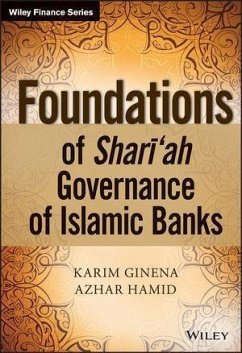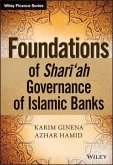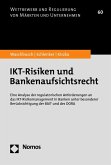A practical guide for robust shari'ah governance of the Islamic banking industry Debate in the market on the extent of shari'ah compliance of Islamic banks, their products, and activities has piqued stakeholders' interest. In Foundations of Shari'ah Governance of Islamic Banks, Karim Ginena and Azhar Hamid explore the depths of shari'ah governance to unravel its mysterious dimensions, and equip academics and practitioners with a solid understanding of the subject, which has become a serious challenge and thus deserves dedicated attention. The authors make a strong case for the need to contain the shari'ah risk that Islamic banks experience, and present a compelling argument for how this should be done. Ginena and Hamid propose a robust shari'ah governance model that comprehensively tackles thisrisk, and helps improve the extent of shari'ah compliance of market players. The authors detail the internal, external, and institutional arrangements needed to promote responsible shari'ah governance, and critically analyze current laws, regulations, and industry practices on the topic. The chapters of the book do the following: * Examine the roots, characteristics and objectives of shari'ah and its relation to financial dealings; * Probe the role of regulators in shari'ah governance, explore the different approaches adopted by banking supervisors, and provide examples of relevant legal and regulatory measures; * Explain to bank directors and management the fiduciary duty they assume with respect to shari'ah compliance, and detail how they could discharge this responsibility in line with best practices; * Elaborate on the purpose of the Shari'ah Supervisory Board (SSB), its responsibilities, competence criteria, internal regulations, and key governance guidelines; additionally, they explore different SSB models; * Describe the internal shari'ah control system including its six components, and examine the internal shari'ah audit function as well as different stages of conducting a shari'ah audit; * Clarify the role of a shari'ah auditor, with guidance on reporting lines, scope of duties, authority, and practical ways on fulfilling tasks, such as a sample shari'ah risk assessment grid and audit checklists; * Discuss the newly emerging external shari'ah advisory firms that are expected to play a key role in the coming years and the services they provide. Through an effective treatment of each of these elements, and the way that they interact with one another, the book offers a fresh take on how robust shari'ah governance of Islamic banks can be successfully accomplished. It is a comprehensive resource for academics, regulators, directors, lawyers, auditors, consultants, employees, and customers of Islamic banks interested in learning more about these challenges. This essential reading persuasively extends the discourse on the subject and addresses critical shari'ah issues that have policy implications for decision makers in jurisdictions aiming to attract the fast-growing Islamic finance industry or increase their market share.
Dieser Download kann aus rechtlichen Gründen nur mit Rechnungsadresse in A, B, BG, CY, CZ, D, DK, EW, E, FIN, F, GR, HR, H, IRL, I, LT, L, LR, M, NL, PL, P, R, S, SLO, SK ausgeliefert werden.









